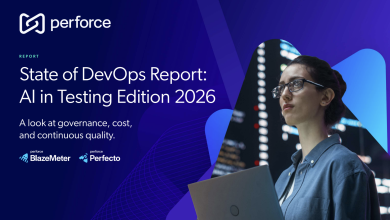
AI is not a new technology or concept. Machine learning and complex algorithms have existed across industries for the past two decades. However, the proliferation of generative AI (GenAI) has injected a wave of fresh innovation, growing the availability and accessibility of AI tools for society as a whole. The progress of technological innovation is actively reshaping how businesses operate, and how societies address some of their most pressing challenges.
The adoption of AI tools across business and public functions is showcasing their capacity to improve productivity, efficiency and even positive social change. What organisations want to know, across the private and public sectors, is how they can best use AI, to support their workforce and customers.
For example, AI chatbots are helping triage requests at to improve experience and operations. Derby City Council, vastly improving satisfaction. Recently this innovation has grown further with the deployment of AI agents. These new tools have elevated the way businesses automate processes in general, allowing them to realise huge efficiencies in productivity and drive truly positive change. This is just one way that AI is being used, and in truth, just the start of the potential of what AI has to offer for all organisations.
AI at the core of organisational change
AI is becoming increasingly used across organisations and sectors and we’re seeing more experimentation which is proving to be beneficial, especially in boosting operational productivity. Use cases are becoming more prominent, and businesses are finding new opportunities to embed AI into their workflows.
It’s evident that the organisations that are the most successful in implementing AI do not dictate from the top down. Instead, they empower employees to explore AI’s potential within their own roles. This freedom must however be coupled with robust governance to ensure AI is used responsibly and ethically, safeguarding both business interests and employee trust.
We’ve seen first-hand just how effective AI can be, especially with targeted applications such as software engineering processes. These tools offer real-time code generation, iteratively improving and streamlining how they work, ensuring they adhere to coding standards to help engineers pursue alternative tasks. We’ve also seen value with this in helping onboard junior engineers, with AI supporting and boosting training initiatives.
In addition to business benefits, AI promises the possibility of transformative societal and public oriented benefits, such as in healthcare and sustainability. We’ve already seen the power of AI in detecting brain haemorrhages and identifying litter or waste within public water supplies, subsequently reducing water pollution.
Driving a diverse workforce through AI support
The impact of AI extends beyond productivity; it’s transforming workplaces into more inclusive and empowering environments. These tools are allies for diverse talent, breaking down barriers and offering tailored assistance to individuals with varying needs.
As an example, AI has had profound supportive effect on neurodivergent employees, AI tools have become vital aids, helping individuals articulate their thoughts more effectively and reducing the anxiety associated with tasks like drafting emails or preparing reports.
Additionally, AI’s language translation capabilities foster inclusivity by bridging linguistic gaps. This enables global teams to communicate and collaborate seamlessly, even if their shared language isn’t their first. AI has the potential to level the playing field by providing all employees with equal access to information and resources, helping curate a culture of empathy, support and equity.
The positive disruption of AI agents
Agentic AI represents an exciting evolution in how organisations can apply emerging technology to automate and simplify complicated tasks. Ultimately the human in the loop will always need to be in place, however 2025 has already seen AI growing from a mere tool to a virtual co-worker.
Businesses that are already leaning on process automation, or even generative AI, have the foundations in place for embracing agentic AI. This sets them in good stead to streamline how they approach sophisticated processes for different needs such as design, new starter onboarding, or managing intricate workflows. Ultimately it means that the human side of the workforce can be utilised more strategically in decision making and creative positions.
The next frontier for AI
The AI revolution is well underway, reshaping how businesses operate, how diverse workforces thrive, and how societies tackle challenges. The implementation of advanced tools across sectors and industries has illustrated the truly boundless potential of this technology.
However, whilst this technology becomes more pervasive, it’s important for organisations to establish responsible and considered ways to use it. The future of AI isn’t about replacing humans, it’s about empowering them, driving innovation, and building a better world.
AI holds the immense potential to take society’s most critical issues head on and be a fundamental force for good. Ultimately, organisations today, regardless of their discipline and sector, should explore AI technological advancements for the betterment of the communities they serve.



